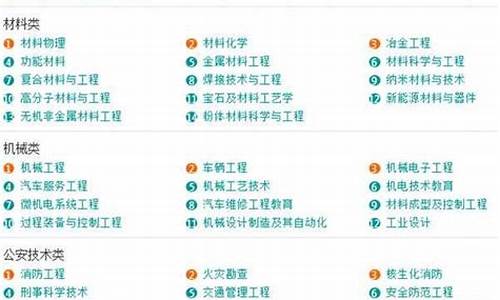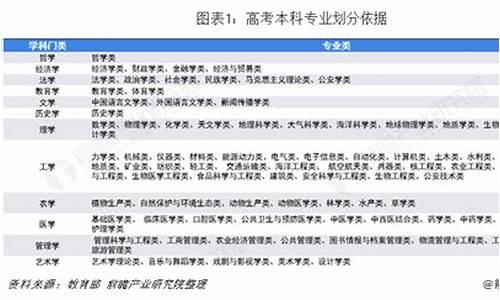您现在的位置是: 首页 > 教育改革 教育改革
2017年新疆英语中考卷,2017高考新疆英语考卷
tamoadmin 2024-07-04 人已围观
简介1.高考英语阅读理解训练2.高考领航2017英语答案大全高考试题全国卷高考试题全国卷简称全国卷,是教育部为未能自主命题的省份命题的高考试卷。分为新课标Ⅰ卷和新课标Ⅱ卷。新课标Ⅰ卷的难度比新课标Ⅱ卷难度大。小语种(日语/俄语/法语/德语/西班牙语)高考统一使用全国卷,各省均无自主命题权,且不分新课标Ⅰ卷和新课标Ⅱ卷。新课标一卷2015年前使用省份:河南 河北 山西 陕西(语文及综合)湖北(综合 )江
1.高考英语阅读理解训练
2.高考领航2017英语答案大全

高考试题全国卷
高考试题全国卷简称全国卷,是教育部为未能自主命题的省份命题的高考试卷。分为新课标Ⅰ卷和新课标Ⅱ卷。
新课标Ⅰ卷的难度比新课标Ⅱ卷难度大。
小语种(日语/俄语/法语/德语/西班牙语)高考统一使用全国卷,各省均无自主命题权,且不分新课标Ⅰ卷和新课标Ⅱ卷。
新课标一卷
2015年前使用省份:河南 河北 山西 陕西(语文及综合)湖北(综合 )江西(综合)湖南(综合)
2015年增加使用省份:江西(语文 数学 英语)、山东(英语)
2016年增加使用省份:湖北、广东、陕西、四川、重庆、福建、安徽
新课标二卷
贵州 甘肃 青海 西藏 黑龙江 吉林 宁夏 内蒙古 新疆 云南 辽宁 海南(语文 数学 英语)
2015年增加省份:辽宁 (语文 数学 英语)
高考英语阅读理解训练
高考英语词汇详解:persuade陷阱题解析
persuade是“说服”还是“设法说服”呢?请看题:
I _____ him not to go abroad, but he wouldn’t listen.
A. persuaded B. tried to persuade
C. have persuaded D. was persuaded
陷阱 容易误选A。
分析 正确答案为B。persuade 的真正意思是“说服”,而不是“设法说服”,要表示后者的意思英语应用 try to persuade 。如:
Who persuaded you to join the club? 谁劝说好你参加这个俱乐部的?
The salesman persuaded us to buy his product. 推销员劝说好我们购买他的产品。
I couldn’t persuade him to change his mind. 我没法劝说他改变主意。
The salesman persuaded us to buy his product. 推销员说服我们买了他的产品。
Who persuaded you to join the society? 谁劝说你参加这个协会的?
Try as I would, I could not persuade him to give up the idea. 尽管我努力这样做,我却没能劝说他放弃这个想法。
He tried to persuade him to change his mind. 他设法劝说他改变主意。
I want to persuade her to overseas with me. 我想劝说她跟我到海外去。
类似地:
kill 的意思是“杀死”,不表示“设法杀死”,要表示后者的意思英语用 try to kill。
prevent 的意思是“阻止”,不表示“设法阻止”,要表示后者的意思英语用 try to prevent。
高考领航2017英语答案大全
高考英语阅读理解精品训练2017
近几年高考英语阅读主要有猜测词义、理解主旨大意、推理判断、对文章的细节理解、 数据推算等几种题型。为了帮助大家备考高考英语阅读理解题,我分享了一些高考英语阅读理解练习,希望能对大家有所帮助!
阅读理解练习1
Not many years ago, a wealthy and rather strange old man named Johnson lived alone in a village in the south of England. He had made a lot of money in trading with foreign countries. When he was seventy?five, he gave ? 12,000 to the village school to buy land and equipment (设备) for a children?s playground.
As a result of his kindness, many people came to visit him. Among them was a newspaperman. During their talk, Johnson remarked that he was seventy-five and expected to live to be a hundred. The newspaperman asked him how he managed to be healthy at seventy?five. Johnson had a sense of humour (幽默). He liked whisky (威士忌酒) and drank some each day. ?I have an injection (注射) in my neck each evening.?he told the newspaperman, thinking of his evening glass of whisky.
The newspaperman did not understand what Johnson meant. In his newspaper he reported that Johnson was seventy?five and had a daily injection in his neck. Within a week Johnson received thousands of letters from all over Britain, asking him for the secret of his daily injection.
1. Johnson became a rich man through
A. doing business. B. making whisky. C. cheating. D. buying and selling land.
2. The gift of money to the school suggests that Johnson
A. had no children. B. was a strange man.
C. was very fond of children. D. wanted people to know how rich he was.
3. Many people wrote to Johnson to find out
A. what kind of whisky he had. B. how to live longer.
C. how to become wealthy. D. in which part of the neck to have an injection.
4. The newspaperman
A. should have reported what Johnson had told him.
B. shouldn?t have asked Johnson what injection he had.
C. was eager to live a long life.
D. should have found out what Johnson really meant.
5. When Johnson said he had an injection in his neck each evening, he really meant that
A. he liked drinking a glass of whisky in the evening.
B. he needed an injection in the neck.
C. a daily injection in the evening would make him sleep well.
D. there was something wrong with his neck.
阅读理解练习2?I?m very tired from working here,?said Jean to her friend Kate,? I?m on my feet from morning to night. For the first quarter of the day, I clean up the counter (柜台) and set the tables. For the next quarter, I help in the kitchen. For the second half of my workday, I take orders at the counters.?
?Kate, I wish I had your job,?Jean went on. ?For four hours you just sit at the cash register (收款台) taking in money.?
?But I spend two more hours in the kitchen (厨房) than you do,?said Kate. ?It?s tiring to cook over a hot stove. I don?t think you?d really want my job. In fact, I?d like your job.?
1. Both Jean and Kate probably work in a
A. hotel B. library C. lab D. shop
2. How long did they work every day?
A. eight hours B. twelve hours. C. Ten hours D. Nine hours
3. How long did Kate spend in the kitchen?
A. a quarter day. B. A half day. C. One-third day. D. Three-fourths day.
4. From this passage we can see that
A. they are both interested in their work. B. their work is neither tiring nor busy.
C. both of them are tired of their work. D. they?ve decided to give up their work.
5. Give a proper proverb (谚语) to Jean and Kate.
A. It?s never too late to learn.
B. It?s no use crying over spilt milk.
C. The grass is always greener on the other side.
D. One swallow(燕子) does not make a summer.
阅读理解练习3In 1985 a French television company sent its reporters to the Paris Metro. They took cameras to see what passengers would do if they saw someone attached on the platform or in the trains. They acted out incidents. The incidents looked real but they were all done with the help of actors. However, very few people tried to help, and most passengers pretended not to notice. in one incident, a foreigner was attacked by three men. The attack was on a train which was quite full, and although one man tried to get the passengers to help, they all refused. It seems that such behaviour(行为) is not unusual, but the question is why? Is it a problem of big cities, or would the same thing happen anywhere? To discuss these questions, we have in the studio(演播室) Professor Wilson, who is an expert on the subject?
1. Who did the experiment?
A. A French television company. B. The Paris Metro.
C. The City Government of Paris. D. Professor Wilson.
2. What did the experiment try to find out?
A. How a foreigner was attacked on the train.
B. How passengers helped each other on the platform.
C. Passengers? reactions towards incidents.
D. Actors? performances during incidents.
3. What was the finding of the experiment?
A. Passengers helped a lot during incidents.
B. Very few foreigners were on the train.
C. Very few passengers tried to help during incidents.
D. Some people were good at acting on the train.
4. Who do the underlined words one man refer to?
A. One of the three men who attacked a foreigner.
B. One of the actors who took part in the experiment.
C. One of the passengers who were on the train.
D. One of the reporters who were sent to the Paris Metro.
参考答案:
1A 2 C 3 D 4 D 5 A
1A 2 A 3 B 4 C 5 C
1D 2 C 3 C 4 B
;一、。 1.A 2.C 3.A 4. B 5. D
二、 1. Have you ever swum 2. he hasn’t visited 3. hasn’t won any prizes 4. I’ve alwayswanted to help you 5. has already invite us to travel 三、 1. It’s over 550metres. 2. To take in thebreath-taking view. 3. By rotating once every 72 minutes. 4. Three. / 3. 5. Some information about the CN Tower.
四、。 1.D 2.B 3.D 4.A 5.B 6.B 7.D 8.A 9.B 10.B
五、
Dear Tony, How are you? I’m having a wonderful timein Beijing now. I have done many interesting things here. I have been to manyplaces of interest. I have visited the Tian’anmen Square, the Palace Museumand the Great Wall. I have taken many nice photos of these famous places. I’llsend some to you with this email. I have also enjoyed different kinds ofChinese food. I’ve tried dumplings, noodles and roast duck. They are all verydelicious. I think Beijing is one of the biggest and busiestcities in the world. There’s a lot to see and do here. I hope we can visit Beijing together nexttime. Yours, Tom









